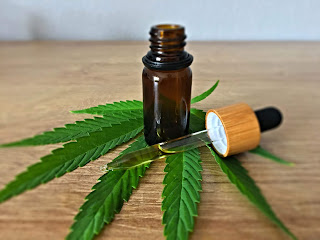What to look when choose CBD oil?
Cannabidiol (CBD) oil is derived from the Cannabis plant. It has many therapeutic benefits and can be used to ease the symptoms of conditions such as anxiety, epilepsy, and cancer.
Many CBD oils only contain trace amounts of tetrahydrocannabinol (THC), so they won’t make you feel “high.” THC is the psychoactive cannabinoid in marijuana.
While there are plenty of CBD oils on the market today, it’s important to find a quality product from a brand you trust.
Everyone responds to CBD oil differently, so it’s also important to try out the oil for yourself and note any positive or negative reactions.
Read on to help narrow down your search, and learn about 10 CBD oils and their uses.
When choosing a CBD oil, opt for a full-spectrum CBD oil instead of an isolate.
Full-spectrum CBD oils contain a variety of cannabinoids and original compounds found in the hemp plant. These may help to magnify the therapeutic benefits of CBD and the additional compounds in what’s known as the entourage effect, though more research is needed.
All of the products listed above are full-spectrum CBD oils.
Full-spectrum CBD oil may include these compounds:
• proteins
• fatty acids
• chlorophyll
• fiber
• flavonoids
• terpenes
The only CBD product approved by the Food and Drug Administration (FDA) is Epidiolex, a prescription drug for epilepsy.
Several labeling inaccuracies have been reported. After analyzing 84 CBD products, one group of researchers discovered that nearly 43 percent contained more CBD than advertised.
That’s why it’s important to select a reputable company. These companies will offer lab results from third-party testing and be available to answer your questions.
Beware of any company that promises extreme results, and remember that results may differ. A product that works well for a friend or family member may not have the same effects for you.
Related Articles : https://www.hempcbdtips.com/
If a product doesn’t work for you, consider trying another with different ingredients or a different amount of CBD.
What’s the difference between CBD oil and hempseed oil?
CBD oil isn’t the same as hempseed oil, which is sometimes labeled as hemp oil.
CBD oil is made from the flower, bud, stems, and leaves of the Cannabis plant. Hempseed oil is made from the hemp seeds.
Hempseed oil can be used topically for skin health, and it can be taken orally as a supplement or food additive.
CBD oil may be taken orally, or it can be added to balms and moisturizers and applied topically.
All of the products noted above should be taken orally.
How to use CBD oil
Shake the bottle before use to ensure the ideal consistency. Use a stopper — many products will come with one — to place the oil under your tongue. For maximum absorption, hold the oil under your tongue for 30 seconds to a few minutes before swallowing.
To determine how many drops to take, follow the recommended dose from the manufacturer or your doctor. Start with a small dose. Over time, you can increase the dose and frequency until you achieve your desired results.
Appropriate serving sizes for CBD vary greatly depending on individual factors, such as intended use, body weight, metabolism, and body chemistry.
Doses should be taken at least four to six hours apart. You can take CBD oil at any time of day. If you’re using it to improve sleep, take it before bed.
The immediate effects of CBD usually take effect within 30 to 90 minutes, but long-term results may take several weeks to achieve.
You can also mix CBD oil into drinks and food, but this may affect absorption.
Store CBD oil in a dry, cool place away from direct heat and sunlight. Make sure the cap is closed tightly after each use. It’s not necessary to refrigerate CBD oil, but it may help to prolong shelf life.
Avoid touching your mouth with the dropper to prevent bacterial contamination and preserve the quality of the oil.
CBD oil is also available in capsules or gummies, or infused into skin care products, such as lotions and salves. CBD oil skincare products can be absorbed into the skin and don’t need to be washed off.
Is CBD oil right for you?
CBD is generally well-tolerated and safe to use, though adverse reactions such as fatigue and digestive issues are possible.
Talk to your doctor before taking CBD oil if you’re pregnant or breastfeeding, have any medical conditions, or take any over-the-counter or prescription medications or supplements. CBD oil has the potential to interact with medications, including those that also interact with grapefruit.
Carefully read the ingredient list if you’re allergic to coconut oil or have any other possible allergies.
CBD oil is legal in many parts of the United States, but most manufacturers require you to be at least 18 years of age to purchase their product. It may not be legal in all countries.
Check your local laws before buying CBD oil. When buying online, confirm with the manufacturer that they will ship to your area, but also check local laws.
Since CBD oil can contain trace amounts of THC, it’s still possible for it to show up on a marijuana drug test. Avoid taking CBD products if this is a concern.
Researchers don’t yet know all of the benefits or risks for CBD oil. Results may be slow and subtle, and they may vary among people. You may wish to track your results using a journal so you can see the effects over time.


Comments
Post a Comment